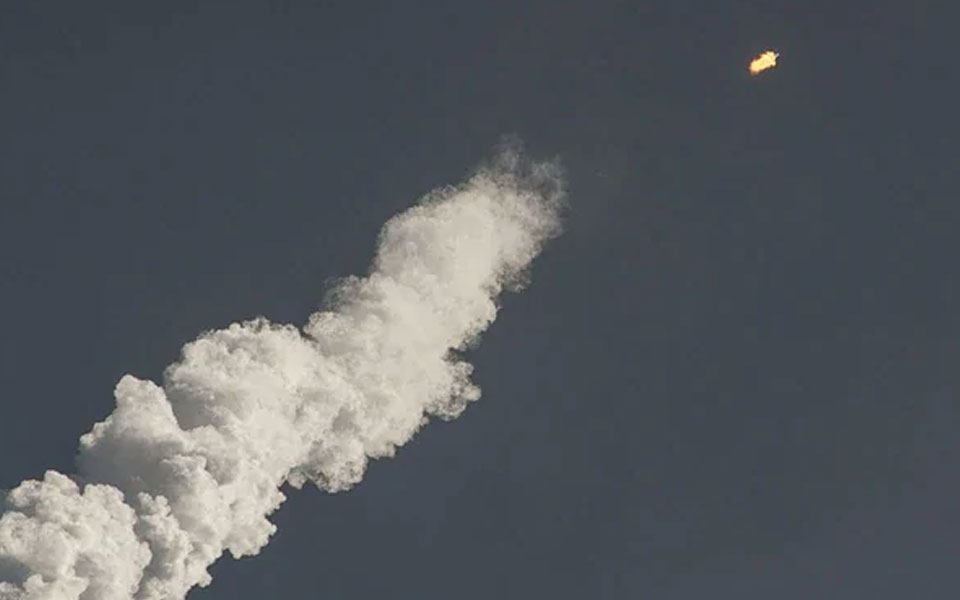Washington: Prominent American experts have said that India has a long way to go when it comes to ensuring space security after it successfully test-fired an anti-satellite missile by shooting down a live satellite.
The test made India the fourth country in the world after the US, Russia and China to acquire the strategic capability to shoot down enemy satellites.
Ashley J Tellis, a senior fellow at the Carnegie Endowment for International Peace who holds the Tata Chair for Strategic Affairs, said ever since China's A-SAT missile test of 2007, India had been contemplating its own A-SAT test primarily to deter potential Chinese attacks on Indian space assets in the future.
"That aim arguably has been satisfied today, but India still has a long way to go where ensuring space security is concerned.
"China has formidable counterspace capabilities and Indian space systems are still highly vulnerable both in peacetime and in conflict. Yesterday's A-SAT test does not alter this basic reality," Tellis told PTI.
Vipin Narang, an associate professor of political science at the Massachusetts Institute of Technology, said that the test is unlikely to make any changes to the balance of power in the region. And as such it is more of a demonstration.
"If Pakistan starts hitting Indian satellites, India can knock out Pakistan's very few satellites. China can knock out all of India's satellites whereas India cannot do the same to China. So it's kind of a weird balance for India if it's interested in getting into the anti-satellite deterrence game (because) it doesn't really have an advantage in either of its dyads," Narang told Wired Magazine.
Daryl G Kimball of the Arms Control Association think-tank in a tweet described this as a dangerous and destabilising move.
"A dangerous & destabilizing move. Underscores need for a global A-SAT ban. US gov't silence is deafening, given its negative reaction to China's '07 test," he said.
Daniel Porras, Space Security Fellow at the United Nations Institute for Disarmament Research (UNIDIR), said that there is a need to have A-SAT guidelines, in particular about the debris.
"A strong Indian military is an important American interest and space is increasingly a contested arena for political-military competition," Benjamin Schwartz from USIBC told PTI.
In New Delhi, the Ministry of External Affairs (MEA) said the test was done in the lower atmosphere to ensure there is no space debris.
"Whatever debris that is generated will decay and fall back onto the earth within weeks," it said.
The MEA came out with a 10-point explainer to say the anti-satellite missile test was carried out to verify India's capability to safeguard space assets and that it was not directed against any country.
It also said in a statement that India has no intention of entering into an arms race in outer space.
"We have always maintained that space must be used only for peaceful purposes. We are against the weaponisation of Outer Space and support international efforts to reinforce the safety and security of space based assets," the MEA added.
Let the Truth be known. If you read VB and like VB, please be a VB Supporter and Help us deliver the Truth to one and all.
Dubai: Smoke was seen rising from an area near the United States Consulate in Dubai, according to witness accounts cited by Reuters.
There was no immediate official confirmation on the extent of damage or whether there were any casualties in the incident.
Earlier, the US embassy in Riyadh, Saudi Arabia’s capital, was also attacked. Authorities reported damage to the premises, but no casualties were recorded.
The developments come amid heightened tensions in the region, with Iran continuing to target US interests in the Middle East following deadly attacks launched on Saturday by Israel and the United States.
Near US embassy in Dubai pic.twitter.com/z5VTZNVxNO
— Sahil Shah (@thesahilsshah) March 3, 2026





